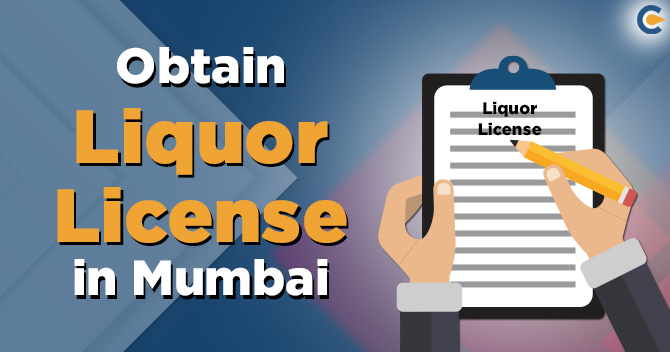Obtaining a liquor license is a crucial step for individuals and businesses involved in the sale and distribution of alcoholic beverages. The process involves meeting specific eligibility criteria set by regulatory authorities. These criteria vary by jurisdiction and license type, making it essential for applicants to thoroughly understand the requirements applicable to their situation.
Importance of Liquor Licenses:
Liquor licenses are essential for businesses that intend to sell or serve alcoholic beverages legally. These licenses are issued by government authorities to regulate the sale and distribution of alcohol, ensuring public safety, and maintaining order in the community. Without a proper liquor license, businesses risk legal consequences, including fines, closure, and even criminal charges.
Types of Liquor Licenses:
Liquor licenses come in various types, each catering to different business models and activities. Common types include on-premises licenses, off-premises licenses, catering licenses, and special event licenses. Each type has specific eligibility criteria based on the nature of the business and the level of alcohol-related activities involved.
General Eligibility Criteria:
While specific criteria may vary, there are common requirements applicable to most jurisdictions when it comes to obtaining a liquor license.
4.1 Legal Age Requirement:
One of the fundamental eligibility criteria for obtaining a liquor license is that the applicant must be of legal drinking age. In most places, this is set at 21 years old. This criterion ensures that those responsible for the sale and distribution of alcohol are mature enough to handle the associated responsibilities.
4.2 Citizenship and Residency:
Many jurisdictions require liquor license applicants to be citizens or legal residents of the country or state. This criterion helps ensure that those obtaining a license have a vested interest in the local community and are subject to local laws and regulations.
4.3 Criminal Record Check:
Applicants are often subject to a thorough background check, including a criminal record check. This is done to assess the applicant’s trustworthiness and ensure that individuals with a history of alcohol-related offenses or other criminal activities do not receive a license.
4.4 Financial Stability:
Demonstrating financial stability is another common eligibility criterion. Authorities want to ensure that license holders are financially responsible and capable of running a business without resorting to illegal activities to sustain it. Financial stability may be assessed through the submission of financial statements, credit reports, or other relevant documentation.
Specific Criteria for Different License Types:
Beyond the general eligibility criteria, specific requirements may apply depending on the type of liquor license sought.
5.1 On-Premises License:
Businesses seeking on-premises licenses, such as restaurants and bars, may need to meet additional criteria. This could include minimum seating capacity, a designated dining area, or restrictions on the sale of alcohol without accompanying food.
5.2 Off-Premises License:
Off-premises licenses, commonly held by liquor stores and supermarkets, may require specific zoning considerations, such as a minimum distance from schools or religious institutions. These licenses often have limitations on the hours during which alcohol can be sold.
5.3 Catering License:
Catering licenses are designed for businesses that provide alcoholic beverages as part of their catering services. Additional criteria may include the need for a licensed bartender at events and limitations on the quantity of alcohol served per guest.
5.4 Special Event License:
Special event licenses are temporary permits allowing the sale and consumption of alcohol at specific events. Criteria for these licenses may include event duration, location, and security measures to ensure public safety.
Application Process:
Navigating the application process is a critical step in obtaining a liquor license.
6.1 Documentation:
Applicants must submit a comprehensive set of documents as part of their application. This may include proof of legal drinking age, citizenship or residency documents, business plans, financial statements, and any other documentation specific to the type of license sought.
6.2 Fees and Costs:
Obtaining a liquor license often comes with various fees and costs, including application fees, licensing fees, and sometimes annual renewal fees. Understanding and budgeting for these expenses is crucial for a smooth application process.
6.3 Waiting Period:
There is typically a waiting period between the submission of the application and the issuance of the liquor license. During this time, authorities may conduct a thorough review of the application, including background checks and inspections.
Common Challenges in Obtaining a Liquor License:
Several challenges may arise during the liquor license application process.
7.1 Local Opposition:
Community members or local businesses may oppose the issuance of a liquor license for various reasons, such as concerns about increased noise, crime, or disturbances. Overcoming such opposition may require effective communication and engagement with the community.
7.2 Zoning Issues:
Zoning regulations can pose challenges, especially if a business is located near sensitive areas like schools, churches, or residential neighborhoods. Applicants may need to navigate zoning laws and seek variances to obtain approval.
7.3 Compliance with Regulations:
Ensuring compliance with all relevant regulations is essential. Any oversight or violation, even unintentional, can lead to delays or denials in the application process.
Renewal and Compliance:
Once a liquor license is obtained, it is crucial to understand the renewal process and ongoing compliance requirements.
8.1 Renewal Process:
Liquor licenses are typically issued for a specified duration and require renewal to remain valid. The renewal process may involve submitting updated documentation, paying renewal fees, and demonstrating continued compliance with regulations.
8.2 Compliance Monitoring:
Government authorities may conduct periodic inspections to ensure that license holders are operating in compliance with the law. Maintaining adherence to regulations is critical to avoid penalties, suspension, or revocation of the liquor license.
Martin Frost & Hill is a law firm based in Austin, Texas. The firm specializes in Texas Alcoholic Beverage Commission and TTB permits representing alcoholic beverage retailers, marketers, importers, and manufacturers in all matters related to their regulated operations and liquor license procedures.
Conclusion:
Obtaining a liquor license is a complex process that involves meeting specific eligibility criteria, understanding the nuances of different license types, and navigating local regulations. Businesses and individuals seeking to obtain a liquor license must conduct thorough research, engage with the community, and ensure compliance with all relevant laws. While the process may pose challenges, a well-prepared and informed applicant is better positioned to successfully navigate the intricacies of obtaining and maintaining a liquor license.













